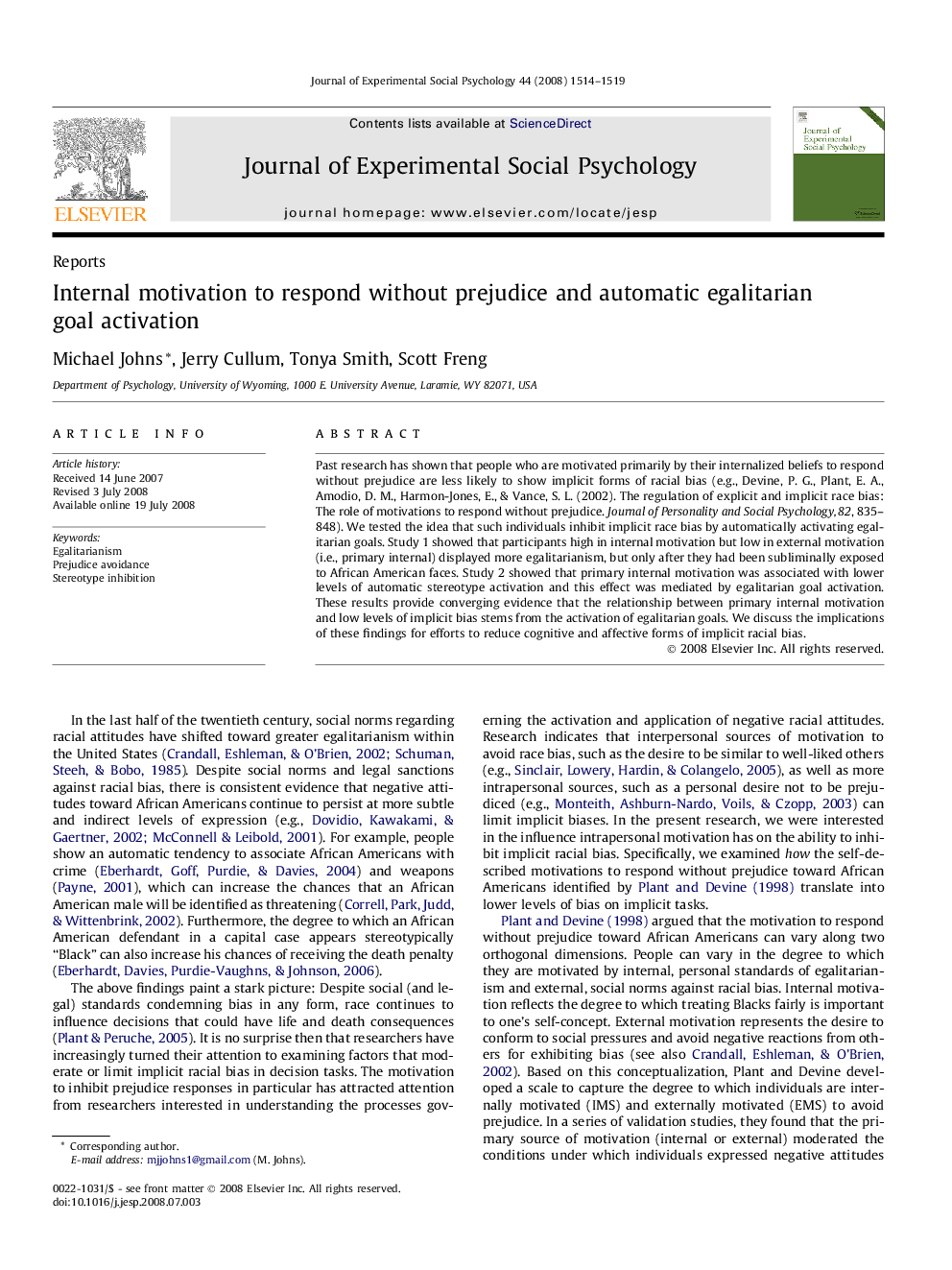| Article ID | Journal | Published Year | Pages | File Type |
|---|---|---|---|---|
| 949058 | Journal of Experimental Social Psychology | 2008 | 6 Pages |
Past research has shown that people who are motivated primarily by their internalized beliefs to respond without prejudice are less likely to show implicit forms of racial bias (e.g., Devine, P. G., Plant, E. A., Amodio, D. M., Harmon-Jones, E., & Vance, S. L. (2002). The regulation of explicit and implicit race bias: The role of motivations to respond without prejudice. Journal of Personality and Social Psychology, 82, 835–848). We tested the idea that such individuals inhibit implicit race bias by automatically activating egalitarian goals. Study 1 showed that participants high in internal motivation but low in external motivation (i.e., primary internal) displayed more egalitarianism, but only after they had been subliminally exposed to African American faces. Study 2 showed that primary internal motivation was associated with lower levels of automatic stereotype activation and this effect was mediated by egalitarian goal activation. These results provide converging evidence that the relationship between primary internal motivation and low levels of implicit bias stems from the activation of egalitarian goals. We discuss the implications of these findings for efforts to reduce cognitive and affective forms of implicit racial bias.
